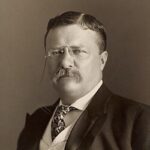Theodore Roosevelt’s Northern Securities trust busting case fundamentally altered American business regulation. The President targeted the massive railroad holding company formed by J.P. Morgan and James J. Hill. This bold action established federal authority over corporate monopolies. 📊
The Northern Securities Decision
Roosevelt filed suit against Northern Securities Company in March 1902. The firm controlled major railroad lines across the Northwest. Morgan and Hill had created this massive trust to eliminate competition. The President argued the company violated the Sherman Antitrust Act. His administration sought complete dissolution of the railroad monopoly. Business leaders viewed this as unprecedented government interference in private enterprise.
Constitutional Concerns Emerge
Constitutional conservatives questioned federal regulatory authority over interstate commerce. They argued Roosevelt exceeded presidential powers through aggressive Northern Securities trust busting. ⚠️ Critics claimed the Constitution protected property rights from government seizure. Legal scholars debated whether antitrust enforcement threatened free market principles. The case raised fundamental questions about federal versus state jurisdiction.
Economic Stakes and Business Opposition
Wall Street financiers condemned Roosevelt’s trust-busting campaign as dangerous precedent. 💰 They feared government regulation would destroy American business efficiency. Railroad executives argued consolidation reduced costs and improved service. Morgan personally confronted Roosevelt, demanding negotiations rather than litigation. The business community viewed federal intervention as economic sabotage.
Impact:
The Northern Securities case created lasting consequences for American business and government relations. The Supreme Court ruled 5-4 in favor of dissolution in 1904. This narrow victory established federal supremacy over corporate monopolies. 🔥
Immediate Political Fallout
Republican business supporters abandoned Roosevelt after the Northern Securities trust busting victory. Conservative Republicans accused him of betraying party principles. Progressive reformers praised the President’s courage against corporate power. The decision split the Republican Party along ideological lines. Roosevelt’s popularity soared among working-class voters nationwide. Corporate donors withdrew financial support from Republican campaigns.
Long-term Regulatory Transformation
The precedent empowered federal agencies to pursue antitrust enforcement aggressively. 📈 Roosevelt initiated 44 additional antitrust suits during his presidency. Congress strengthened regulatory authority through subsequent legislation. The Interstate Commerce Commission gained expanded powers over railroad rates. Federal bureaucracy grew to monitor corporate behavior across industries.
Constitutional and Economic Legacy
The ruling expanded federal commerce clause interpretation permanently. State governments lost primary jurisdiction over large interstate corporations. 🌍 International investors questioned American commitment to free market capitalism. Business consolidation strategies shifted to avoid federal scrutiny. The decision fundamentally altered the relationship between government and private enterprise. Modern antitrust law traces its origins to Roosevelt’s Northern Securities precedent.
